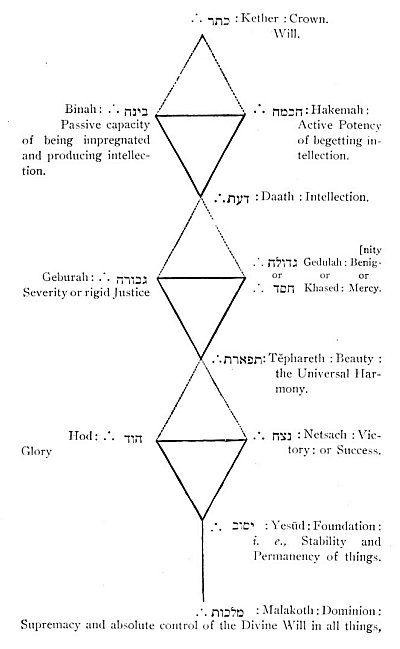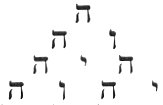No dispensations of God’s Providence, no suffering or bereavement is a messenger of wrath: none of its circumstances are indications of God’s Anger. He is incapable of Anger; higher above any such feelings than the distant stars are above the earth. Bad men do not die because God hates them. They die because it is best for them that they should do so; and, bad as they are, it is better for them to be in the hands of the infinitely good God, than anywhere else.
Darkness and gloom lie upon the paths of men. They stumble at difficulties, are ensnared by temptations, and perplexed by trouble. They are anxious, and troubled, and fearful. Pain and affliction and sorrow often gather around the steps of their earthly pilgrimage. All this is written indelibly upon the tablets of the human heart. It is not to be erased; but Masonry sees and reads it in a new light. It does not expect these ills and trials and sufferings to be removed from life; but that the great truth will at some time be believed by all men, that they are the means, selected by infinite wisdom, to purify the heart, and to invigorate the soul whose inheritance is immortality, and the world its school.
Masonry propagates no creed except its own most simple and Sublime One; that universal religion, taught by Nature and by Reason. Its Lodges are neither Jewish, Moslem, nor Christian Temples. It reiterates the precepts of morality of all religions. It venerates the character and commends the teachings of the great and good of all ages and of all countries. It extracts the good and not the evil, the truth, and not the error, from all creeds; and acknowledges that there is much which is good and true in all.
Above all the other great teachers of morality and virtue, it reveres the character of the Great Master Who, submissive to the will of His and our Father, died upon the Cross. All must admit, that if the world were filled with beings like Him, the great ills of society would be at once relieved. For all coercion, injury, selfishness, and revenge, and all the wrongs and the greatest sufferings
p. 719
of life, would disappear at once. These human years would be happy; and the eternal ages would roll on in brightness and beauty; and the still, sad music of Humanity, that sounds through the world, now in the accents of grief, and now in pensive melancholy, would change to anthems, sounding to the March of Time, and bursting out from the heart of the world.
If every man were a perfect imitator of that Great, Wise, Good Teacher, clothed with all His faith and all His virtues, how the circle of Life’s ills and trials would be narrowed! The sensual passions would assail the heart in vain. Want would no longer successfully tempt men to act wrongly, nor curiosity to do rashly. Ambition, spreading before men its Kingdoms and its Thrones, and offices and honors, would cause none to swerve from their great allegiance. Injury and insult would be shamed by forgiveness. “Father,” men would say, “forgive them; for they know not what they do.” None would seek to be enriched at another’s loss or expense. Every man would feel that the whole human race were his brothers. All sorrow and pain and anguish would be soothed by a perfect faith and an entire trust in the Infinite Goodness of God. The world around us would be new, and the Heavens above us; for here, and there, and everywhere, through all the ample glories and splendors of the Universe, all men would recognize and feel the presence and the beneficent care of a loving Father.
However the Mason may believe as to creeds, and churches, and miracles, and missions from Heaven, he must admit that the Life and character of Him who taught in Galilee, and fragments of Whose teachings have come down to us, are worthy of all imitation. That Life is an undenied and undeniable Gospel. Its teachings cannot be passed by and discarded. All must admit that it would be happiness to follow and perfection to imitate Him. None ever felt for Him a sincere emotion of contempt, nor in anger accused Him of sophistry, nor saw immorality lurking in His doctrines; however they may judge of those who succeeded Him, and claimed to be His apostles. Divine or human, inspired or only a reforming Essene, it must be agreed that His teachings are far nobler, far purer, far less alloyed with error and imperfection, far less of the earth earthly, than those of Socrates, Plato, Seneca, or Mahomet, or any other of the great moralists and Reformers of the world.

Moe is the founder of GnosticWarrior.com. He is a father, husband, author, martial arts black belt, and an expert in Gnosticism, the occult, and esotericism.






